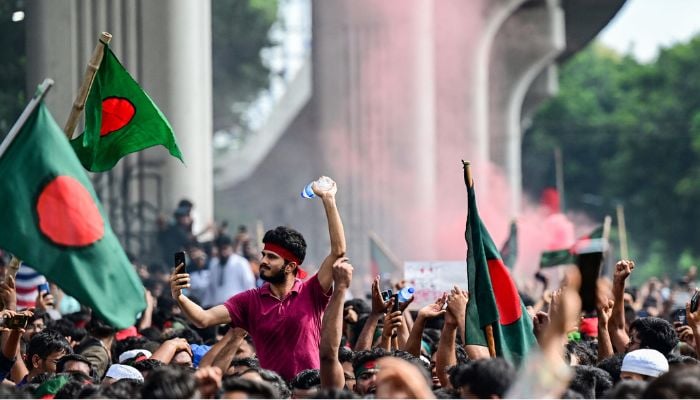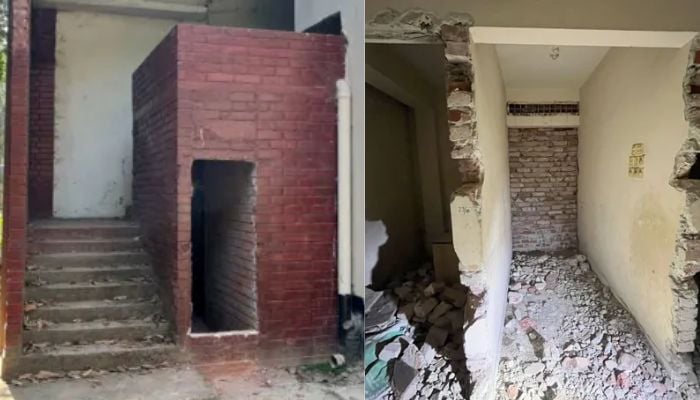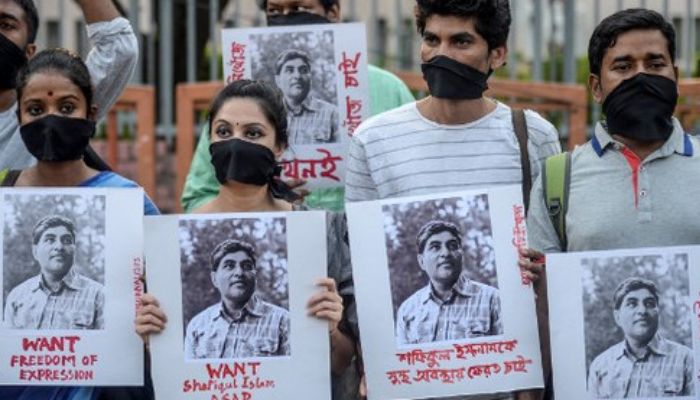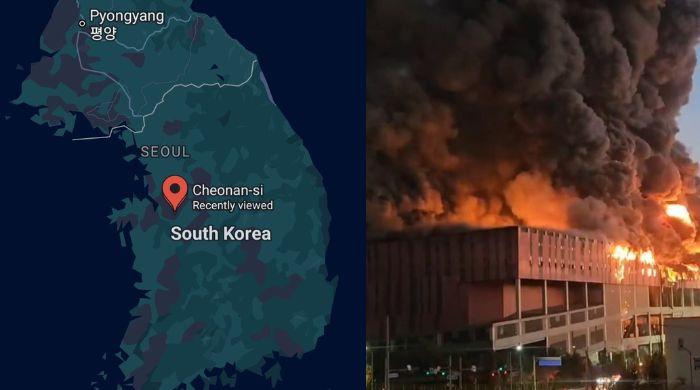Sheikh Hasina Wajid's death sentence: Timeline of crimes that toppled ex-PM of Bangladesh
Ousted Bangladeshi PM Sheikh Hasina sentenced to death for crimes against humanity
November 17, 2025

A special tribunal in Dhaka has sentenced former Bangladeshi Prime Minister Sheikh Hasina Wajid to death after finding her guilty of crimes against humanity.
The court’s verdict was delivered in absentia on November 17, 2025, as Hasina has been living in self-exile in India since her ouster in 2024.
Following are the key crimes that led to her historic sentencing:
Ordering lethal force against protestors (July 2024)

The prominent cause of her downfall and subsequent death sentence was her authorization of deadly force against student-led protests.
An international forensics expert verified a leaked audio recording where Hasina explicitly instructed security personnel to “shoot protestors on sight.”
Following this order, a massacre of over 1,400 civilians and injuries to thousands more was witnessed. It is known as “July Revolution.”
Systematic human rights abuses (2009-2024)
During her 15-year uninterrupted rule, her government was accused of widespread enforced disappearances and extrajudicial killings.
Human Rights Watch documented these structured abuses, targeting political opponents, journalists, and dissenters.
The tribunal found these were not isolated incidents but are linked to a state-sanctioned pattern.
Corruption and embezzlement on a grand scale
After her regime, a thorough investigation revealed the embezzlement of $5 billion meant for the Rooppur Nuclear Power Plant, with funds funneled through offshore accounts.
According to a white paper of the government, it is estimated that almost $240 billion was laundered during her tenure, with 124 bank accounts of Hasina and her family members now frozen.
Establishment of secret-prison network

After Hasina was ousted, the arthritis found 500-700 secret prison cells cited as “ayanghars” across Bangladesh where she kept political prisoners and often ordered to execute them.
These secret detention centers that were located near Dhaka airport, were systematically bricked up to conceal evidence.
Crushing democratic institutions
During her regime, a Digital Security Act 2018, used to imprison critics and suppress freedom. The resultant curbs on the freedom of expression in Bangladesh have done major damage to the little semblance of documentary that was left in the country at that time, especially after the democratic setbacks posed by two controversial elections in 2014 and 2018.
Some of the prominent victims of this act were author and social activist Mustaq Ahmed who died in Bangladeshi jail on February 25, 2021, after being detained and allegedly tortured for social media posts criticising the government.
Another case is against journalist Shafiqul Islam Kajol who was accused of circulating “objectionable” information about ruling party leaders by a tribunal on November 8, 2021.

The 2014 and 2024 elections were widely condemned as fraudulent with opposition parties either boycotted or violently suppressed.
With the death sentence of Hasina, the final chapter of a leader whose methods became increasingly authoritarian has started.












